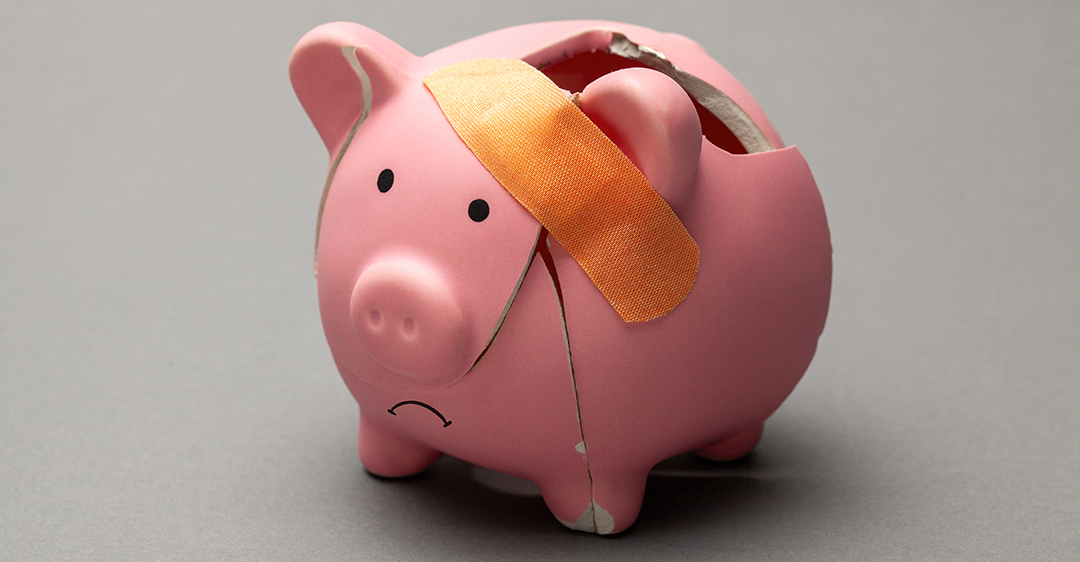
While the CARES Act provided help for businesses during the beginning of the pandemic, many are still struggling as the United States continues to battle the Covid-19. New legislation unveiled last month, called the ‘HEALS Act’ is a $1 trillion stimulus package.
The Coronavirus pandemic has had a devastating impact on businesses across the US and the world, but the HEALS Act works to combat that impact through loans, tax credits, and liability shields.
HEALS Act Extends the Payment Protection Program (PPP)
The Payroll Protection Program, or PPP, aims to help small businesses who have been negatively impacted by the Coronavirus pandemic. Initially, the program sent more than $500 billion in loans to businesses across the country. Most of these loans were forgivable enabling businesses to stay afloat without worrying about paying back high interest rate loans.
While the first round of PPP provided aid for many small businesses, there were issues with its delivery. Loans were approved for large companies such as Shake Shack and Ruth’s Chris Steak House despite the fact that they should not have qualified for this funding.
Since then, many of those companies have paid back their loans and the Department of Treasury issued guidance that stated that PPP borrowers had to certify that they could not obtain credit from another source. So while a large public company with substantial market value likely has numerous options for funding, a smaller business would rely on a program such as PPP to receive the funding they need to stay afloat that they may not have otherwise qualified for.
Aside from those issues, many businesses who received PPP loans to pay their employees and business expenses are now running out of funding. Without additional loans they may not be able to pay their employees or continue to maintain their business.
To combat this, the HEALS Act proposes a second funding for the PPP program. This money will allow qualifying businesses to receive a second PPP loan. The proposal combines the leftover funds from the first round to be combined with new funding to equal $190 billion.
To receive funding this time around, businesses will have to prove that they have fewer than 300 employees and they must demonstrate that their revenue has fallen at least 50% due to the pandemic.
An additional $100 billion will provide long-term loans to seasonal businesses and businesses in low-income census tracts. Qualifying businesses can receive a loan of up to twice their annual revenue (capped at $10 million) which will only accrue interest at 1%.
Employee Retention Tax Credits are Included in the HEALS Act
As businesses have been hurt by the pandemic, employers have struggled to retain employees. While finding the money to continue to pay their employees is a challenge, some business owners had to consider letting some of their employees go.
With that in mind, the Employee Retention Tax Credit, created by the CARES Act, aims to incentivize businesses to keep their employees despite the pandemic’s impact on their revenue. The refundable tax credit is equal to 50% of qualified wages paid between March 12, 2020 and January 1, 2021.
The HEALS Act will increase the limit on qualified wages as well as increase the percentage of qualified wages to 65 percent.
HEALS Act Creates Tax Credit Incentive on Business Meals
The pandemic hit restaurants hard due to mandatory shutdowns and later restrictions on both indoor and outdoor dining. Limited seating capacity due to the need for social distancing, increased cleaning frequency, and smaller staff has lead to a decrease in revenue. The longterm shutdowns and reduction in patrons has lead a number of restaurants to close permanently and others wondering how they will make ends meet even as the country begins to reopen.
While revenue was lost due to the inability for guests to dine in for dinner, many restaurants who used to bring in large lunch crowds are struggling to recover, as well. When office buildings were open, employees frequented nearby restaurants for take out and dine in lunch services, businesses catered meals for their employees, and some companies took their clients or employees out to lunch.
Since the pandemic has caused most companies to switch to remote work, employees are eating out less and businesses are paying for fewer meals. The HEALS Act proposes giving a tax credit for business meals.
This plan offers a 100% tax deduction on business meals. It incentivizes employers to provide meals for their employees which improves employee retention, increases workplace satisfaction, and will benefit the companies during tax season.
HEALS Act Includes a Tax Credit for Health and Safety Expenses
This proposal also includes a tax credit which will help business owners pay for the necessary health and safety expenses to protect their workers. The credit is refundable for 50% of these costs including testing, personal protective equipment, and enhanced cleaning protocols.
This credit is limited based on the numbers of employees that a company has. The first 500 employees are limited to $1,000 per employee, the next 500 employees is $750 per employee, and it reduces to $500 per employee in excess of that number.
Liability Shield Provided by HEALS Act
A major concern for many companies reopening has been pandemic-related liability. Even with increased cleaning protocols and social distancing, the Coronavirus is still easily spread. Companies worry that when they bring their employees back to work and start seeing clients again they could be on the hook for medical treatments and other expenses due to an outbreak.
To combat this, the proposal also includes a 5-year liability shield for businesses, universities, schools, and hospitals for covid-related damages. This makes it more difficult for someone to bring a successful lawsuit against any of these companies or institutions due to covid-related complications and damages.
In order to successfully sue, a plaintiff must prove both gross negligence and violation of state and local public health guidelines. This act also gives federal courts jurisdiction over lawsuit claims related to the pandemic.
Call Boyer Law Firm
Contact us today if you’re interested in learning more about how the HEALS Act can benefit your business and/or assistance in applying . Our firm can guide you through the application process and tax implications.





